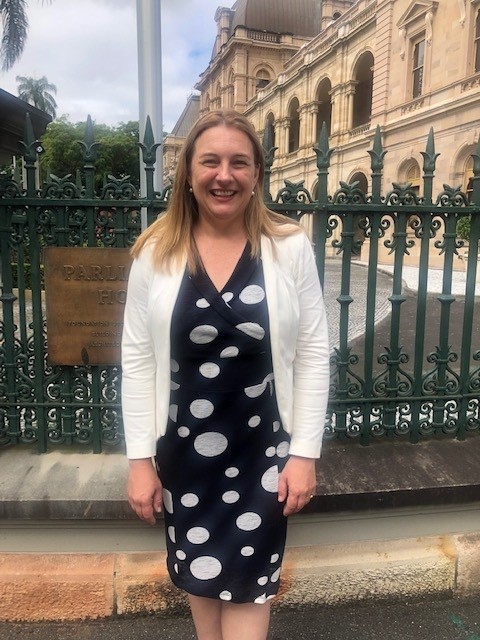These are my notes from my appearance before the Parliamentary Review Committee into the Personal Injuries Proceedings Act on 4 May 2022.

Our firm commends the Committee for the proposed amendments to the Personal Injuries Proceedings Act. We agree that claim farming is abhorrent, brings the profession into disrepute, threatens the viability of our insurance schemes and causes unnecessary distress to potentially vulnerable members of the community.
The written submissions we have provided to the Committee relate to concerns we have about the current restrictions on advertising for personal injuries services. I would like to emphasise that our firm supports ongoing restrictions on advertising but ultimately the concerns we have raised relate to the confusion the current restrictions are causing consumers.
We support the restriction of advertising for personal injuries services for the same reason that we support the Committee’s proposed action to prevent claim farming. Tasteless and aggressive advertising relating to personal injuries has the capacity to bring the profession into disrepute. Advertising which encourages people to make a claim in circumstances where they would not have done so out of financial necessity may threaten the viability of our insurance schemes. Perhaps most importantly, graphic or flippant representations of trauma in publications can cause unnecessary distress to vulnerable members of the community.
The Legal Services Commission has interpreted Section 66 of the Personal Injuries Proceedings Act as meaning that a firm’s website cannot include photographs of the practitioners on any page which mentions that the practitioners practice in the area of personal injuries law.
Repeated feedback from our prospective clients has been that they do not know what we do even after they have specifically searched for personal injuries lawyers in Brisbane. We do not know how many potential inquirers never contact us because they do not know that we are personal injuries lawyers. We do know that we receive many inquiries which are not related to personal injuries as the potential clients assume that we practice in other areas of law.
Large firms have been able to legally circumvent the restrictions. For example, a large firm can legally place a billboard on the M1 saying their name and the words “no win no fee” and then place a further billboard 100m further along saying that they accept instructions on personal injuries claims. Smaller firms cannot do this as we do not practice in any area other than personal injuries law. However, this loophole and the advertising, while legal, is disingenuous. I am unaware of any firm practicing outside the area of personal injuries law which routinely accepts instructions on a “no win no fee” basis.
We would also suggest that the term “no win no fee” is fundamentally disrespectful to anyone who has sustained an injury and misrepresents the nature of the compensatory system. The common law and the legislative framework in Queensland is compensatory. To suggest that someone who has suffered injuries has had a “win” by recovering compensation suggests they have received a windfall and diminishes the impact of their injuries.
Some firms have circumvented the restriction by advertising for TPD and Superannuation claims. These are contractual claims which are not restricted by Section 66. However, the advertising uses images and words which would indicate to a lay person that they are referring to personal injuries claims.
We object to participating in this course of action because, in most cases, clients do not require legal representation for TPD and Superannuation claims. While we are prepared to accept instructions in these areas of law, we generally advise clients not to engage our services and incur unnecessary expense unless and until their claims have been rejected. We also consider attempting to advertise for this area of work is disingenuous as the distinction is not apparent to lay clients.
We are also concerned about the uncertainty created by the legislation in the context of the modern digital environment. On one reading of the legislation, it is incumbent upon a firm to remove unsolicited positive google reviews as they are unlawful testimonials posted on a database maintained by a third party provider. However, this requirement would not apply to negative reviews leaving firms in the position where they may arguably be required to keep all negative reviews and remove any positive ones. We would suggest that this is not in the interests of consumers nor the legal profession and is presumably not the intention of the legislation.
Our submission is not intended to be disrespectful to lawyers in larger firms. The advertising those firms are engaging in is legal under the current regime. However, there are a variety of reasons why consumers may prefer to engage a smaller firm. Smaller firms can offer more personalised service at a lower cost. As it currently stands, smaller firms usually rely upon word of mouth referrals from other lawyers. While this is an excellent business model for us, it denies freedom of choice to unqualified consumers who do not know a lawyer.
In an effort to provide greater clarity to unqualified consumers we have suggested the Act be amended so that:-
- Restrictions contained in Section 66 not apply to a Firm’s website or social media;
- Unsolicited reviews should not be required to be removed by a Firm;
- Restrictions contained in Section 66 should also be extended to TPD, Superannuation or Contractual claims associated with a person’s health conditions;
- Solicitors should not be able to advertise that they act on a “no win no fee” basis in relation to any area of practice.


![Medical Records and Claims for Personal Injuries – Maher v Russell [2022] ACTSC 297](https://karelawyers.com.au/wp-content/uploads/2023/02/files.jpg)



